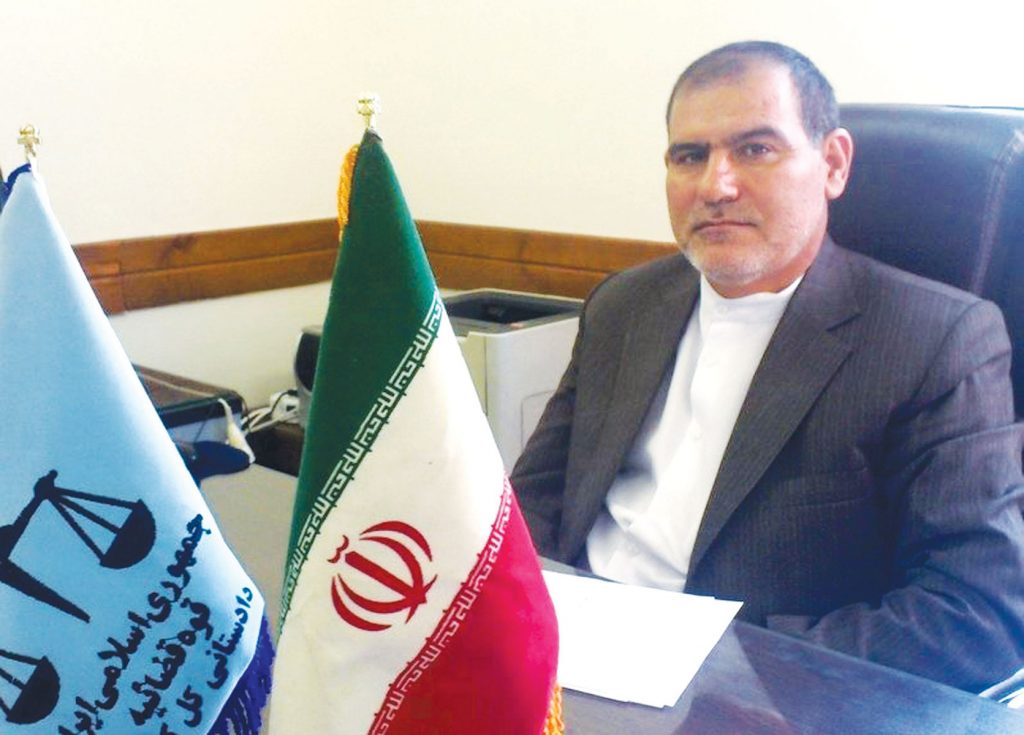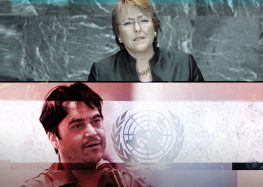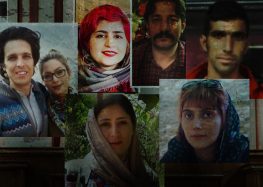Official Suggests Iran May Soon Block Access to Widely Used Telegram Messaging App

Abdolsamad Khorramabadi, the secretary of Iran’s Taskforce to Determine Instances of Criminal Content (TDICC).
A provocative comment by a high-level official in Iran has resulted in renewed fears among the public that the government may soon block access to the country’s most widely used private messaging app, Telegram.
“Twitter and YouTube will not be un-filtered,” Abdolsamad Khorramabadi, the secretary of the Taskforce to Determine Instances of Criminal Content (TDICC), the body in charge of censoring internet content, told the Iranian Students’ News Agency (ISNA) on March 16.
“In fact, on the eve of the Iranian new year [March 20, 2018], an unprecedented consensus has developed among officials to cut the enemy’s domination and influence on the country’s cyberspace,” he added.
Khorramabadi did not elaborate on his latter statement, but many Iranians took it to mean that Telegram—which has been the subject of ire by hardline officials for years—would also soon be blocked.
According to Telegram’s latest figures, the app has more than 40 million active users in Iran.
The internet and social media apps are heavily restricted and censored in Iran, with hardliners in the government viewing any form of internet freedom as a threat to the Islamic Republic.
Khorramabadi’s provocative statement follows recent, pivotal events in Iran relating to internet freedom. First, the country’s widespread December 2017 protests, in which access to Telegram was blocked for two weeks. Second, a comment by an official of the policy-making Supreme Cyber Council (SCC) describing Twitter, which has been blocked since 2009, as “an effective means of public diplomacy.”
“Twitter and YouTube have been filtered [blocked] by judicial order of judicial authorities and other authorities cannot interfere in matters decided by judicial authorities,” insisted Khorramabadi.
“The reason Twitter and YouTube have been filtered is that they do not comply with the laws of the country and to prevent the publication of millions of criminal content and block the paths to espionage and the domination of cyberspace by foreigners,” he added.
A day after Khorramabadi’s statements, Hamideh Zarabadi, a reformist member of Parliament (MP), told the Iranian Labor News Agency that the Telecommunications Ministry had “approved” the decision to block Telegram.
“Based on reliable information I’ve received from the Telecommunications Ministry, the permanent filtering [blocking] of Telegram has been approved by the SCC,” he said. “Such comments are meant to prepare the public for the implementation of this decision.”
On March 18, Iran’s Parliament held a closed session in the presence of state officials to discuss the role of the internet in Iran’s December 2017 protests. Afterwards, MP Mohammad Hossein Ghorbani denied that Telegram would be blocked.
“I can say for certain that no decision has been made about filtering Telegram so far,” he told ISNA on March 18. “Security and ethnical issues in cyberspace, especially on Telegram, are very important to us. But we can be strong and haggle with this company to make them agree to our demands.”
That same day, SCC secretary Abolhassan Firouzabadi criticized “domestic extremists”—judicial and security officials—for refusing to lift the ban on Facebook and Twitter, arguing that the ban has reduced officials’ abilities to present their viewpoints to an international audience. But Firouzabadi agreed with the hardline view that “the continuation of Telegram’s operation in Iran is not in our interest.”
“Domestic extremists have aided [Iran’s absence in international media outlets] by supporting efforts to close down Twitter and Facebook, etc,” he said. “But the channels on Telegram promote a kind of thuggery in the country. It’s a kind of one-way news dissemination. It’s sensationalist and seditious.
“We have no presence in international media,” added Firouzabadi.
Telegram, a Dubai-based company founded by Russian CEO Pavel Durov, has repeatedly refused to comply with demands by the Iranian government to base its servers in Iran. Doing so would make it much easier for the government to intercept messages and censor pages on the app.
Iranians Vent on Social Media
Khorramabadi’s suggestion that Telegram would soon be blocked resulted in a flurry of tweets by Iranian users.
“Regardless of whether his claims will lead to the filtering of Telegram or not, this choice of words by people like Mr. Khorramabadi is very annoying,” tweeted Amin Sirjani, a social affairs reporter for the Etemad newspaper, on March 16.
“They use certain phrases that they know will anger some parts of society,” he added. “They are being stubborn towards the people, to put it simply.”
While expressing concern over the possibility that Telegram could be blocked, technology freelance journalist Sadegh Zangeneh tweeted on March 16, “Alarm bells are sounding for Telegram.”
Twitter user Reza Kiani was more skeptical, “They [judicial officials] want to shut down Telegram again but they don’t have the government’s backing so they’re weaving fantasies.”
Censored Websites in Iran
Data published by Rotbenegar, operated by the Telecommunication Ministry’s Information Technology Research Center (ITRC), shows that Telegram is the fourth most accessed mobile app in Iran.
Investigations by the Center for Human Rights in Iran (CHRI) reveal that the webpage that appears when a website is blocked in Iran is meanwhile the sixth most accessed destination.
Whenever a user in Iran tries to access a blocked website, the attempt is logged as the IP address used by the servers of the state Telecommunications Infrastructure Company of Iran. The fact that that IP address is the sixth most accessed site in Iran indicates the magnitude of online content censored in the country.
The censorship of applications and websites in Iran—a long-standing policy of the Islamic Republic—has continued under President Hassan Rouhani despite ongoing declarations by him since his first election campaign in 2013 that he supports some forms of internet freedom.
“We will not be looking into filtering social media” said Rouhani on December 19, 2017, adding, “The [Telecommunication] Minister will promise the people right here that his finger will not touch the filtering button.”






